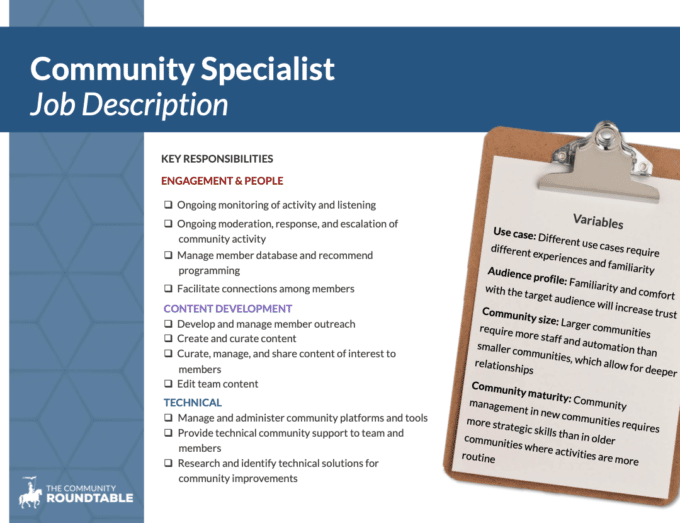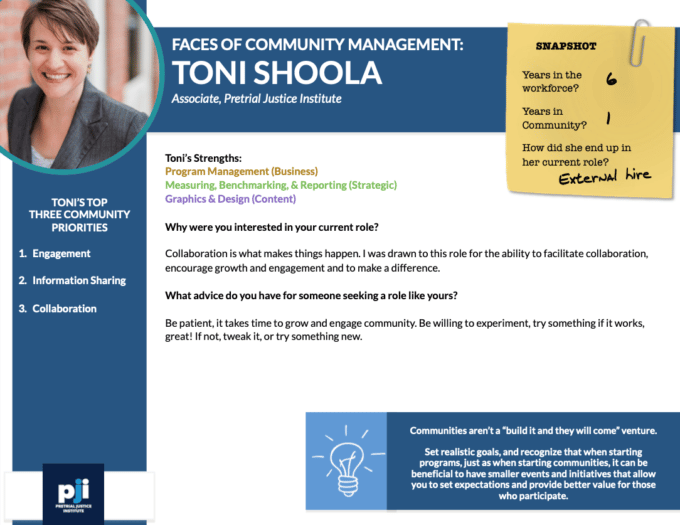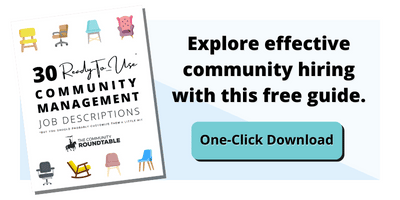Community Specialists are the experts and emerging experts on a community team. Unlike community manager roles, where generalists are prized, Community Specialists often have a focus in one of three disciplines: engagement, content, or technical initiatives.
Community Specialist Responsibilities
Community Specialists focus on tactical initiatives and projects to support the community team in their area of expertise. On the job, Community Specialists tend to be “in the weeds” doing anything from providing training and support to members, curating and editing community content, or working with analytics, design, content management systems or other technical assets. For those interested in a community career who lack the general skill set required, joining a team as a Community Specialist is a great way to start with a specific focus, letting you expand your roles and responsibilities from there if interested.

ENGAGEMENT & PEOPLE
- Ongoing monitoring of activity and listening
- Ongoing moderation, response, and escalation of community activity
- Manage member database and recommend programming
- Facilitate connections among members
CONTENT DEVELOPMENT
- Develop and manage member outreach
- Create and curate content
- Curate, manage, and share content of interest to members
- Edit team content
TECHNICAL
- Manage and administer community platforms and tools q Provide technical community support to team and members
- Research and identify technical solutions for community improvements
These skills are a small example of the responsibilities and requirements of a successful community specialist. As always, we encourage you to think about the unique requirements of your roles, and use our Community Skills Framework™ as inspiration for creating the right community specialist job description for your organization.
Variables to consider when drafting your community specialist job description include:
- Use case: Different use cases require different experiences and familiarity
- Audience profile: Familiarity and comfort with the target audience will increase trust
- Community size: Larger communities require more staff and automation than smaller communities, which allow for deeper relationships
- Community maturity: Community management in new communities requires more strategic skills than in older communities where activities are more routine
Toni Shoola – Associate, Pretrial Justice Institute

Toni’s Strengths:
- Program Management (Business)
- Measuring, Benchmarking, & Reporting (Strategic)
- Graphics & Design (Content)
Why were you interested in your current role?
Collaboration is what makes things happen. I was drawn to this role for the ability to facilitate collaboration, encourage growth and engagement and to make a difference.
What advice do you have for someone seeking a role like yours?
Be patient, it takes time to grow and engage community. Be willing to experiment, try something if it works, great! If not, tweak it, or try something new.

